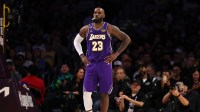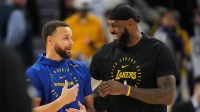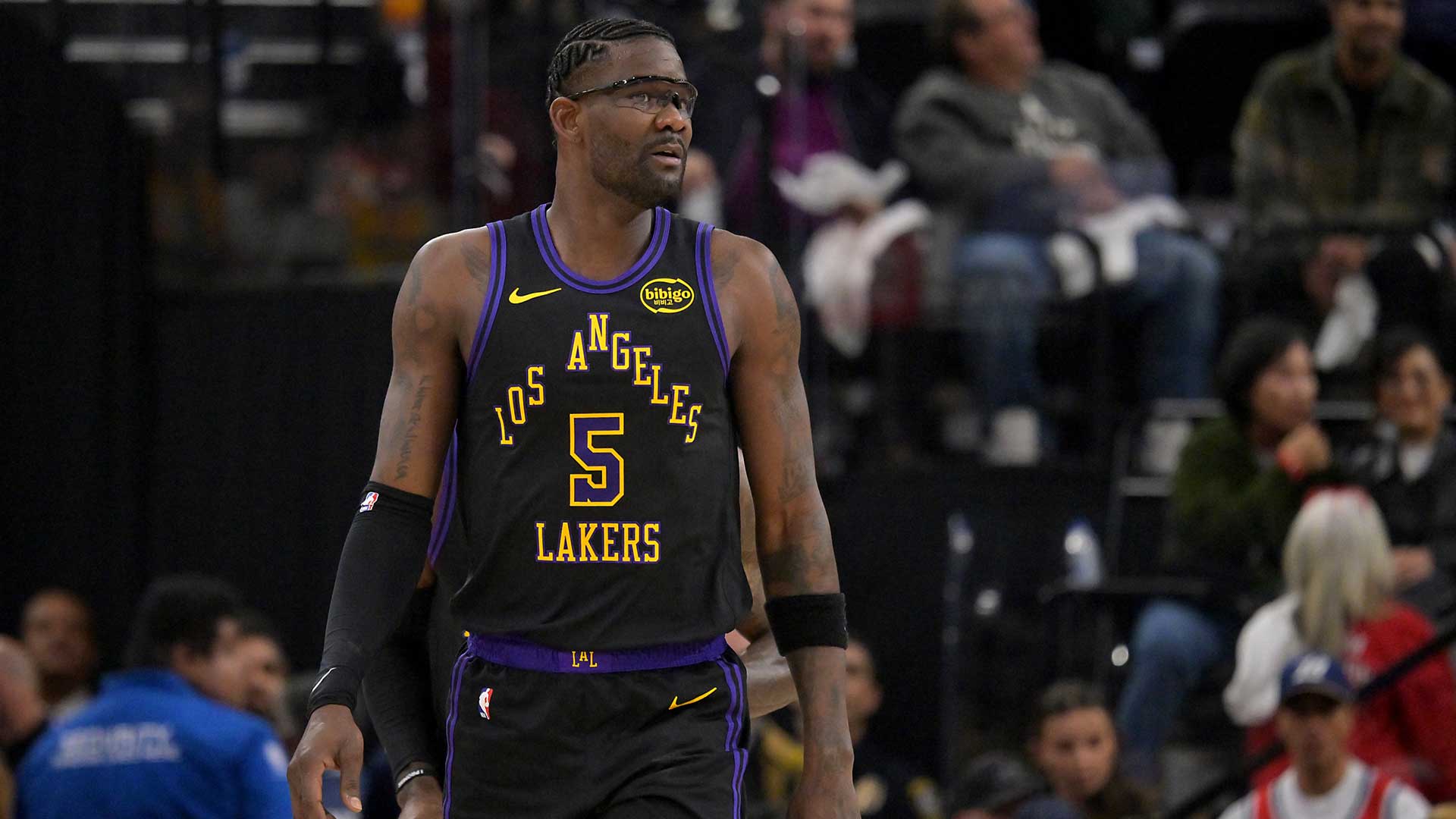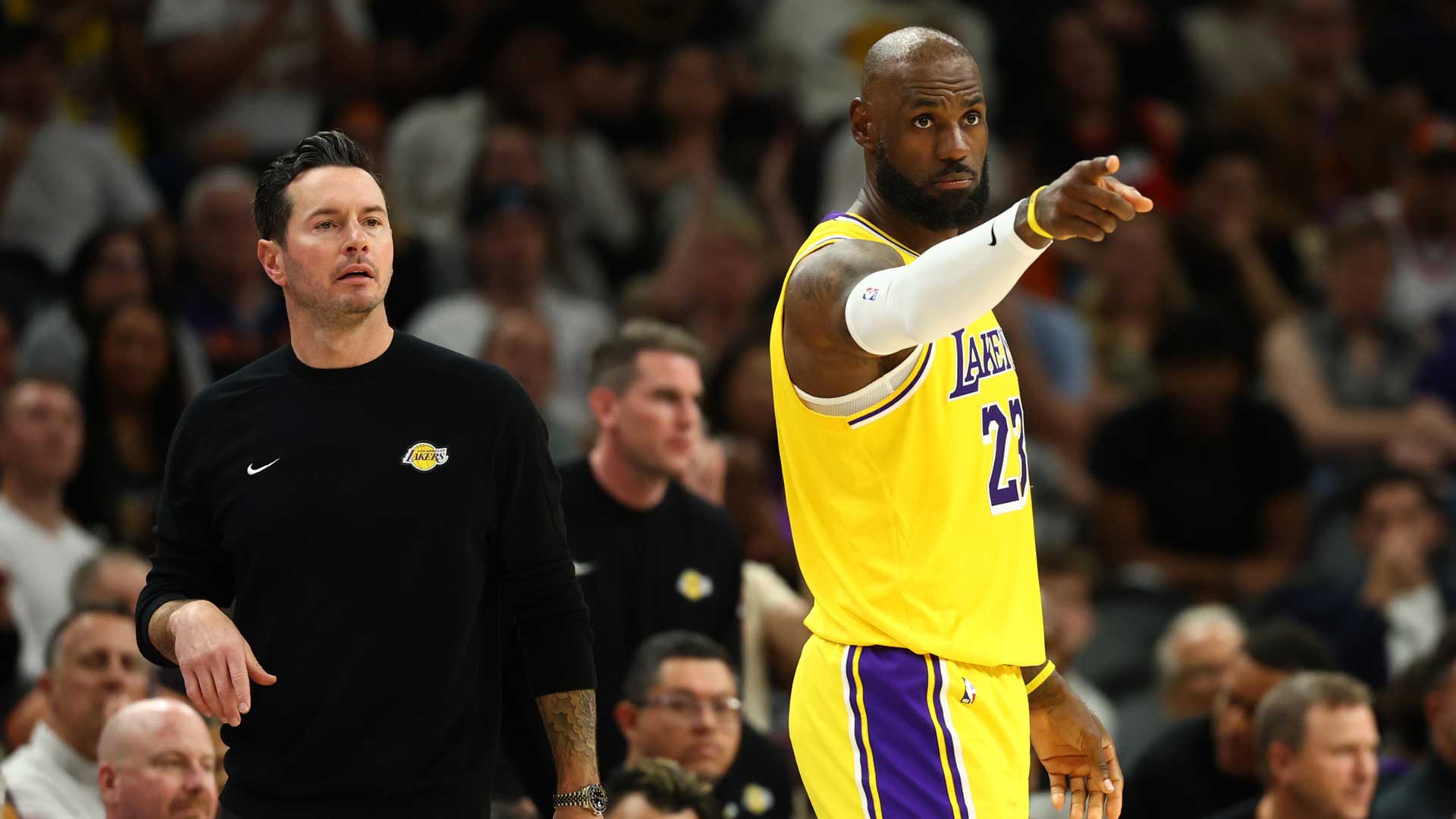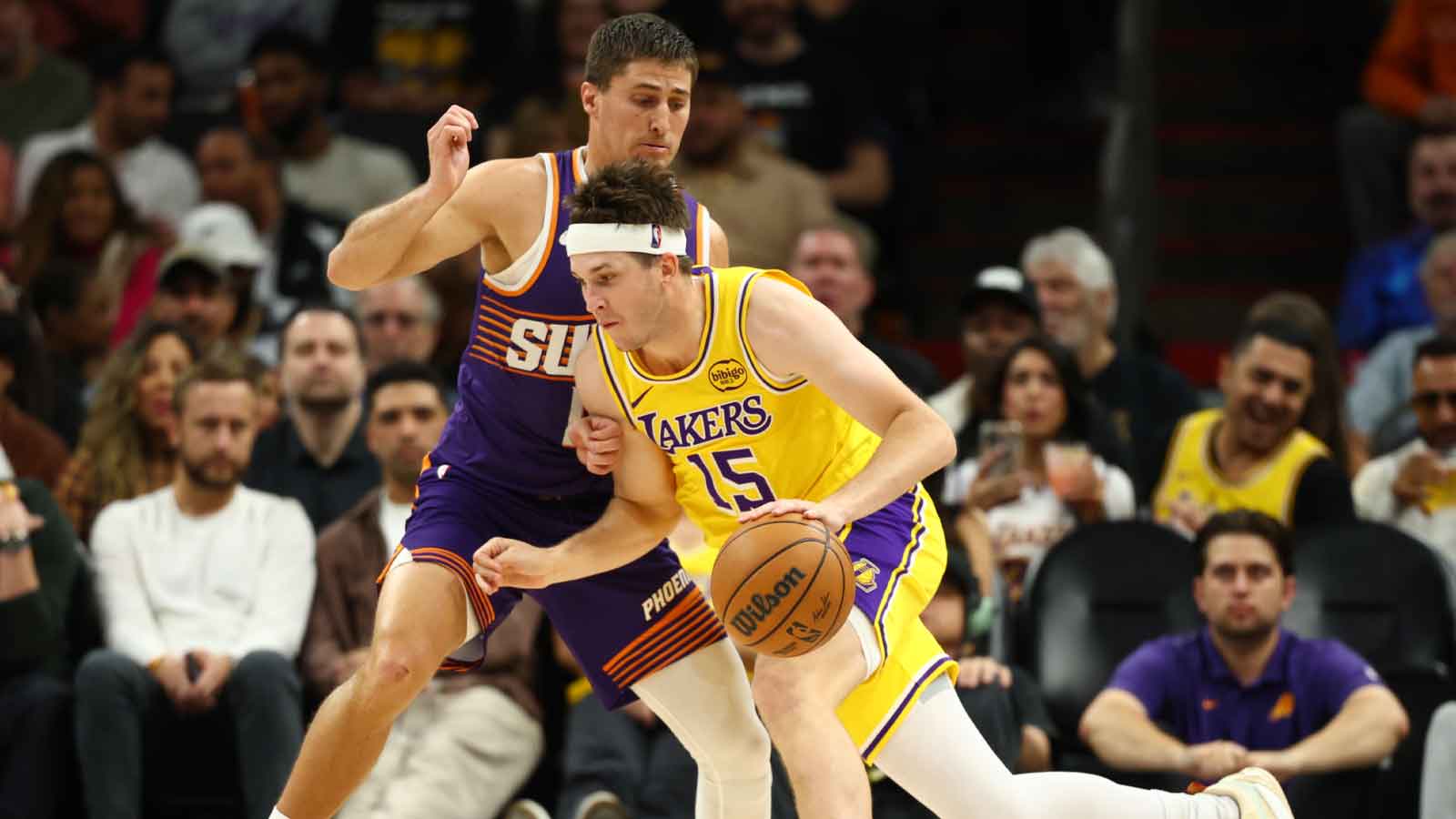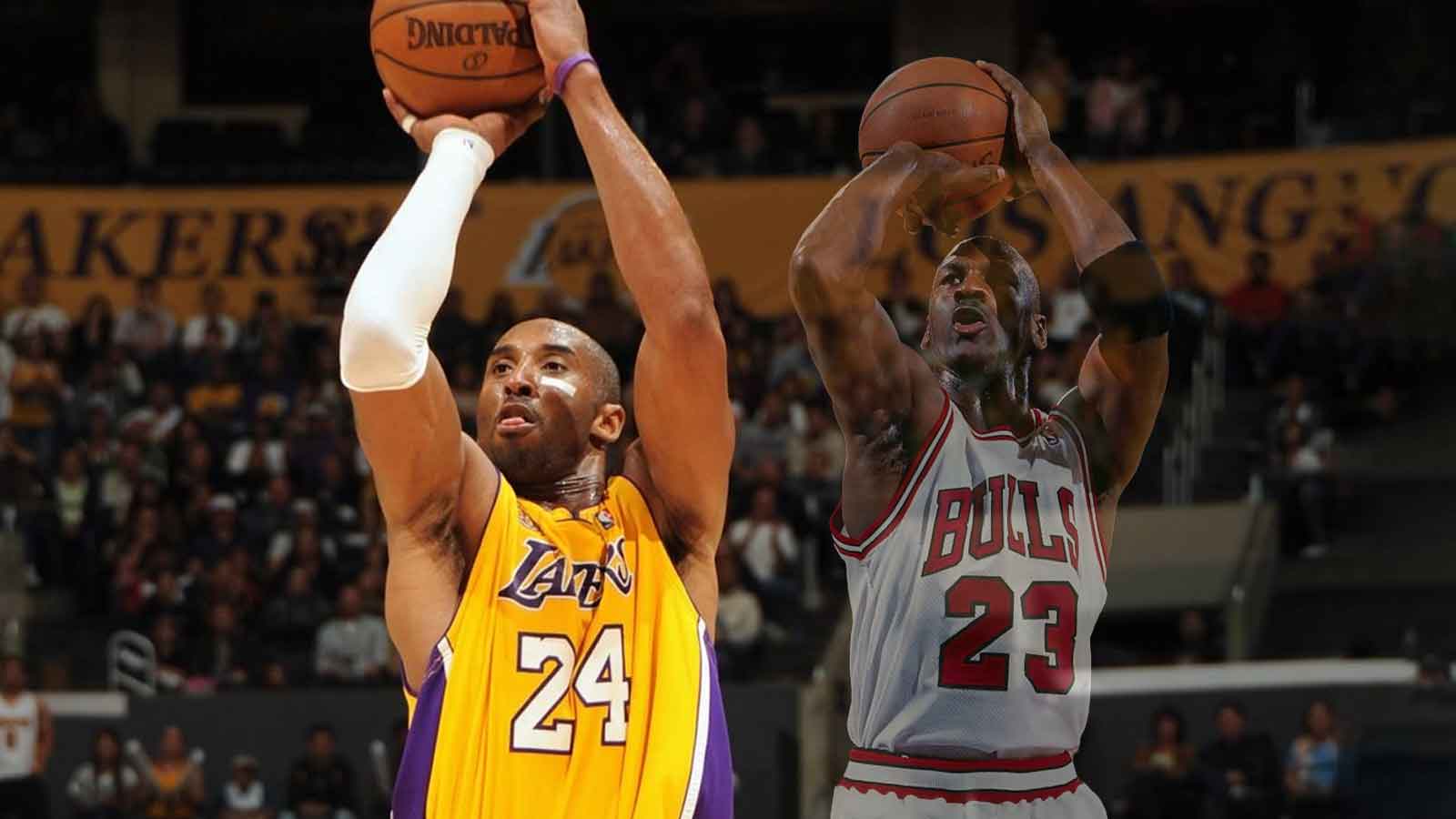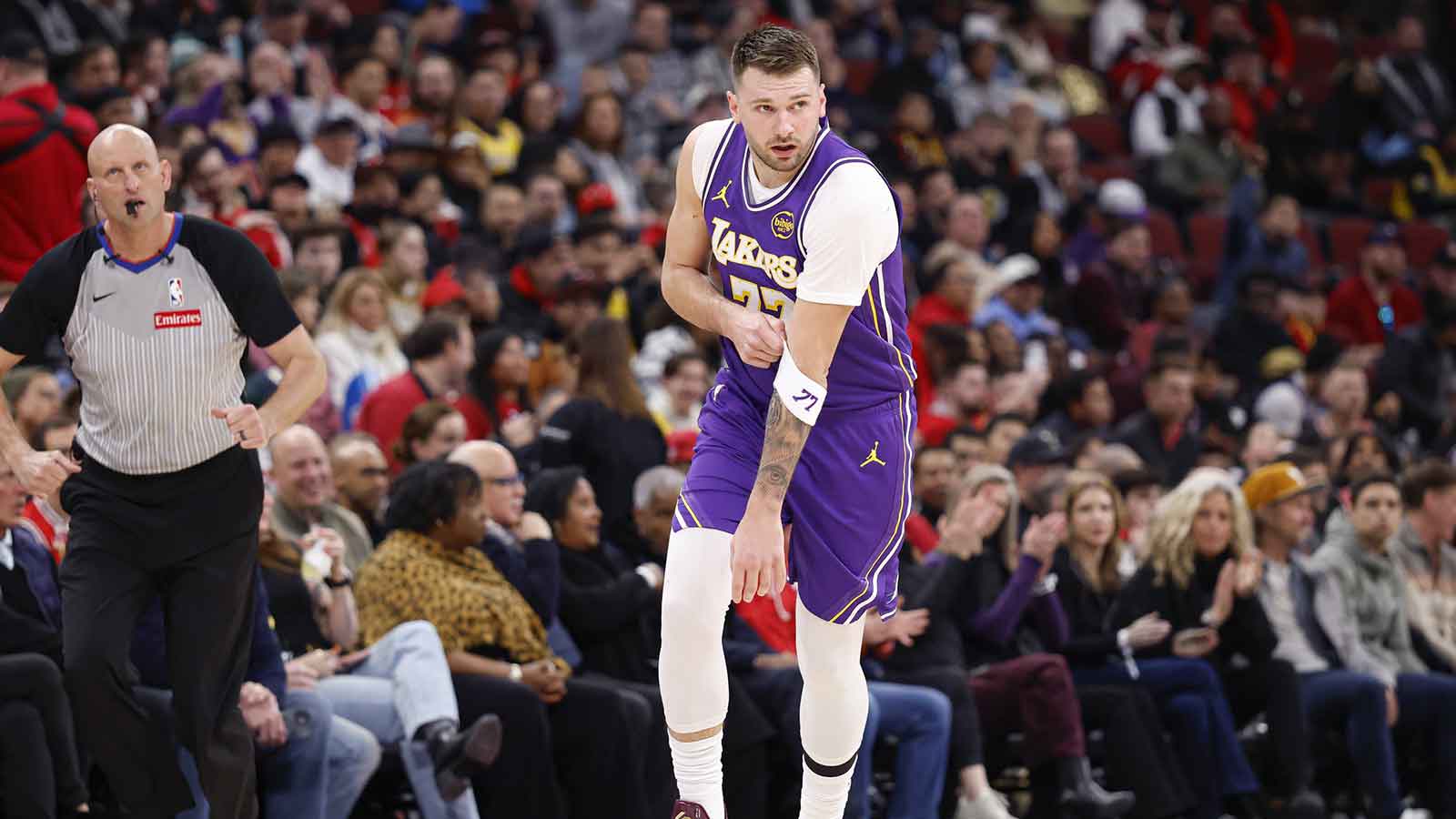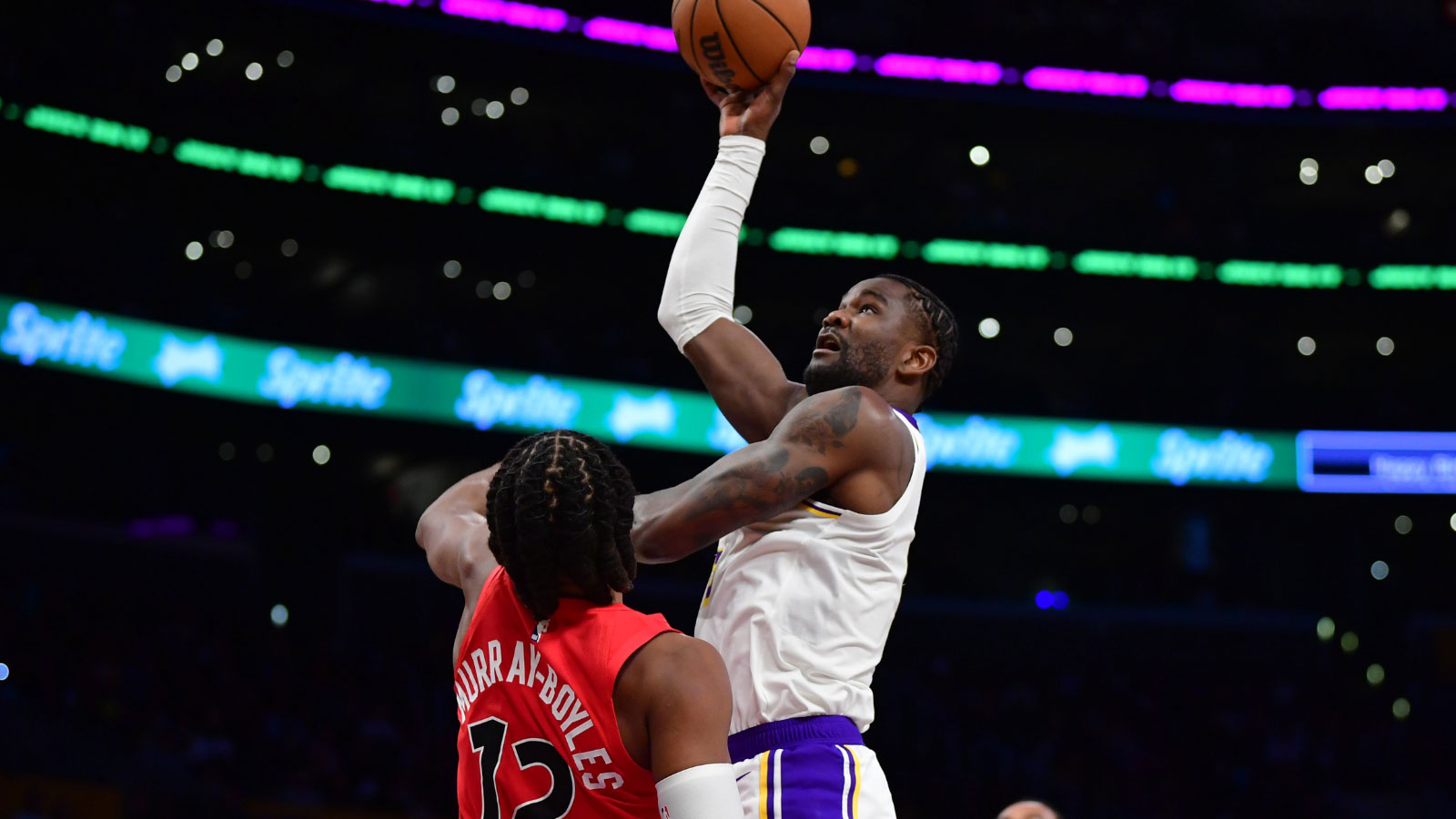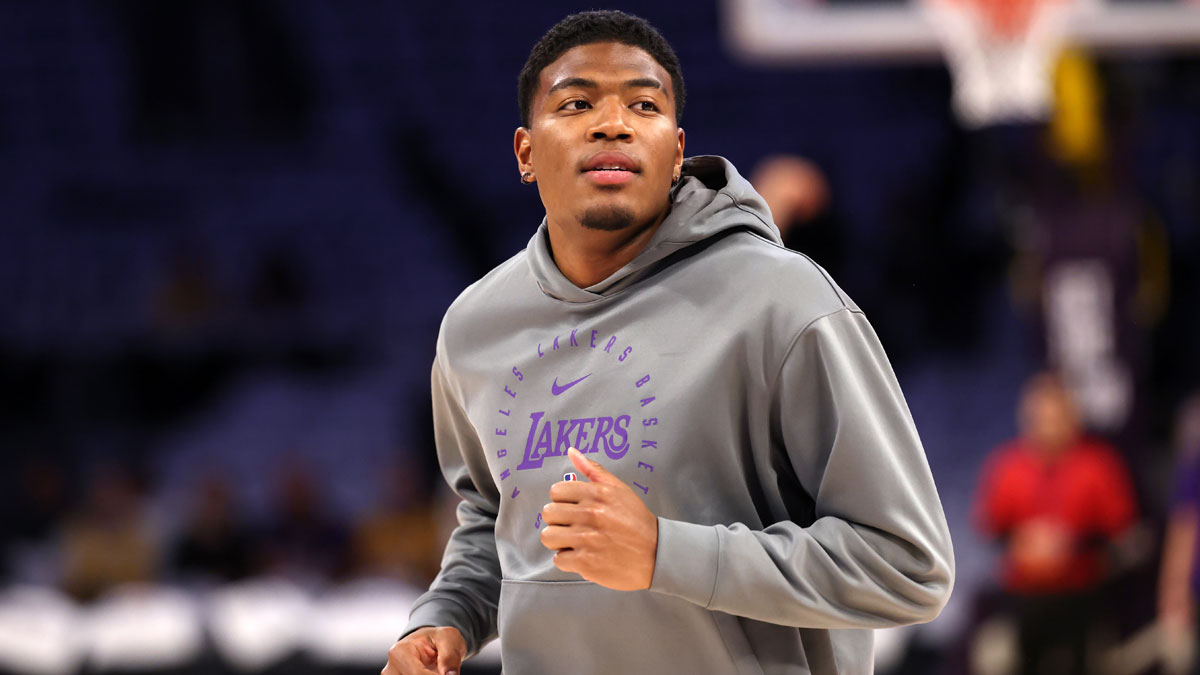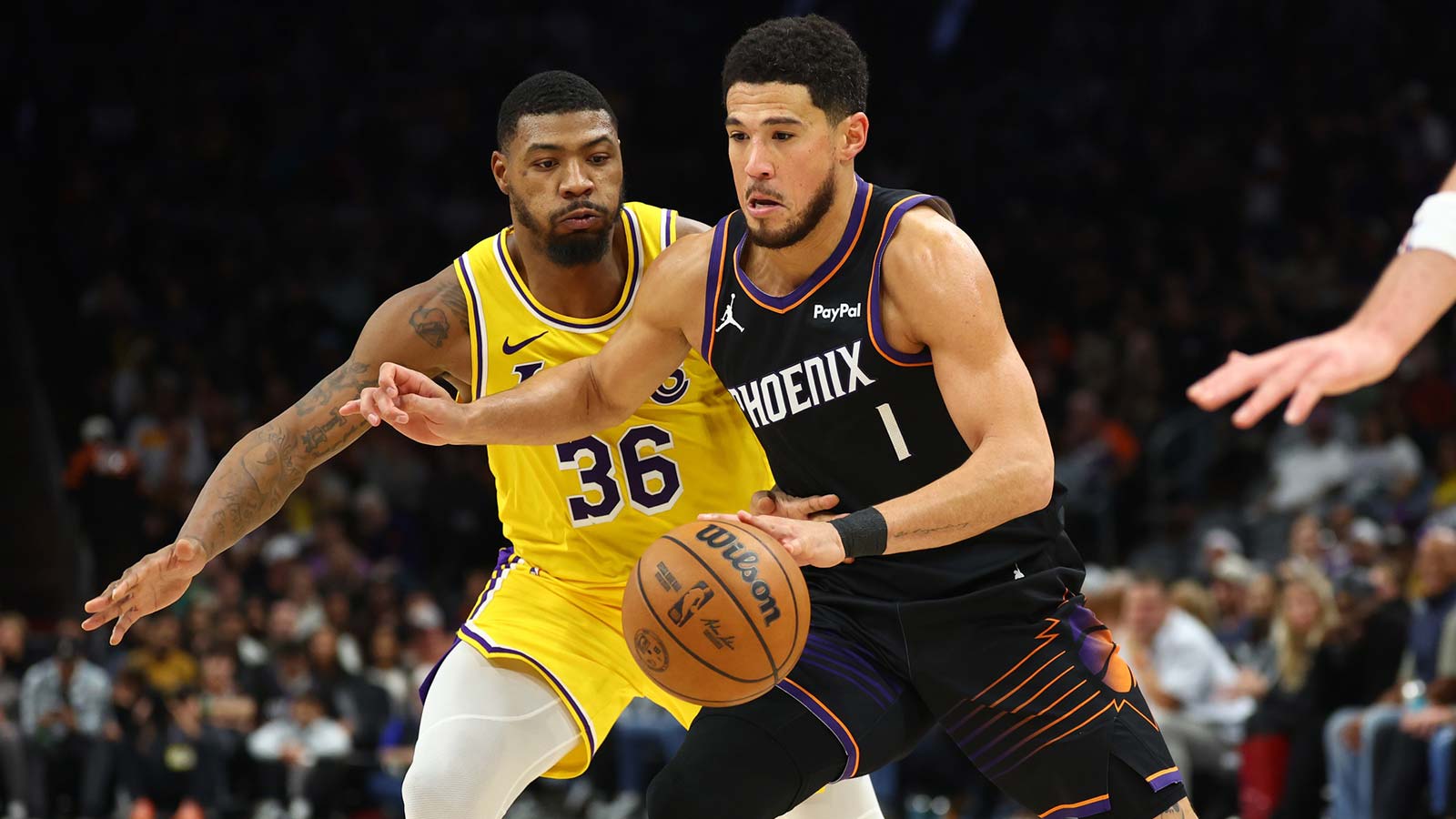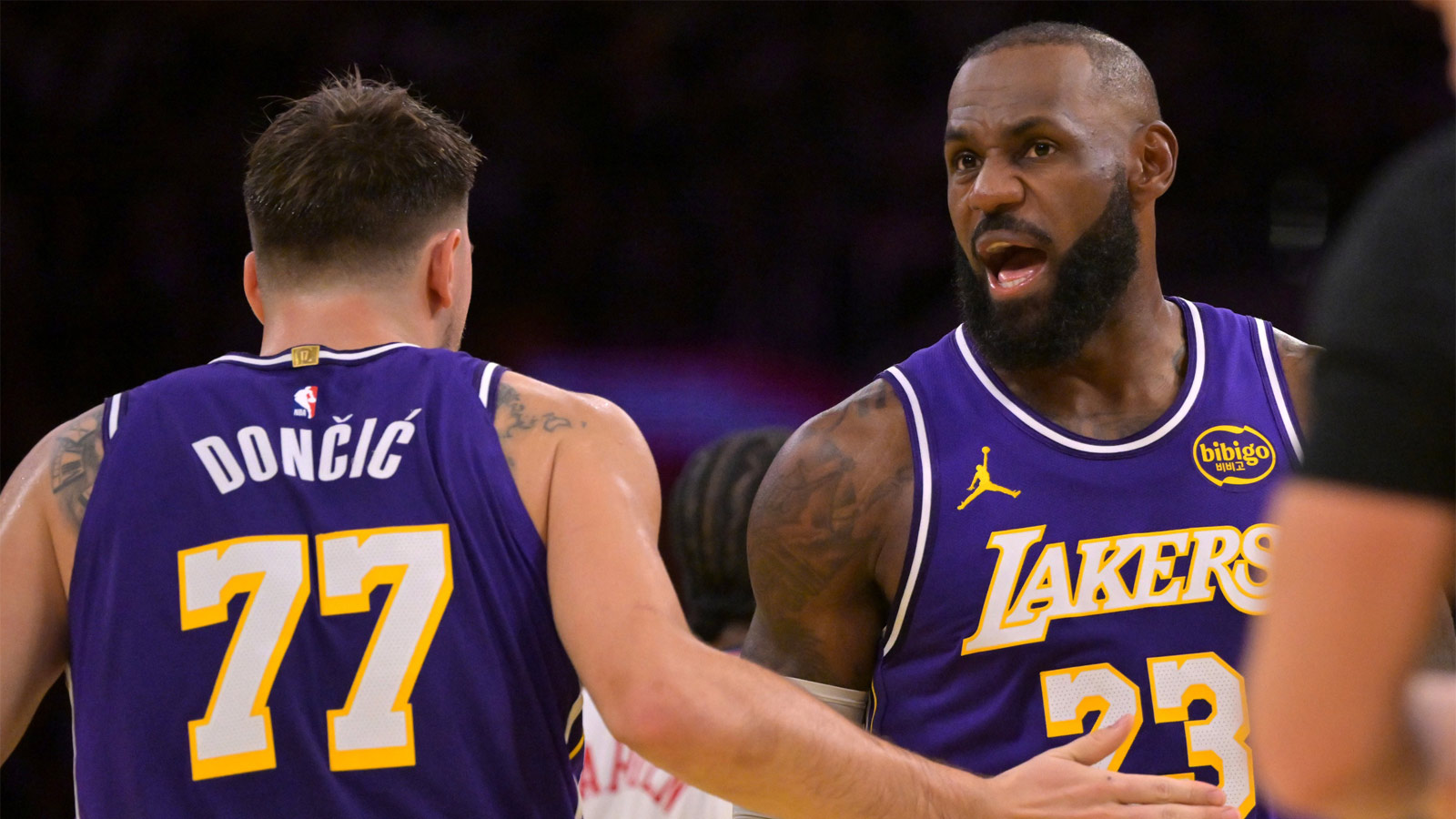The creative team behind Season 2 of “Winning Time: Rise of the Lakers Dynasty” compiled a companion guide outlining the historical accuracy of each episode, which they provided to ClutchPoints' Lakers reporter.
“We felt it important to show our work out of respect for the many living characters depicted,” the creators wrote. (Episodes begin with a disclaimer: “This series is a dramatization of certain facts and events. Some of the names have been changed and some of the events and characters have been fictionalized, modified or composited for dramatic purposes.”)
In Episode 4, “The New World“, the Lakers — especially Magic Johnson — are rapidly losing faith in head coach Paul Westhead. With the 1981-82 season just underway, Magic shockingly tells the media that he would like to be traded.
Here's what goes down in Episode 5, “The Hamburger Hamlet“, and how it represents what actually happened. Spoilers aplenty.
We open with Dr. Jerry Buss facing the media the day after Magic’s trade request. The Lakers — facing mounting pressure after a playoff flameout and the Boston Celtics’ title — are amid a five-game winning streak, but Westhead’s polarizing offensive system has irrevocably irked the point guard.
Before Buss speaks, the episode rewinds a few hours to snowy Salt Lake City, where the Lakers head to the team bus as Pat Riley wolfs down a cigarette while donning one of the many immaculate coats featured in the scene (quality filmmaking).
Westhead brushes off Magic's remarks to Riley and reporters until he's informed by the press of a summit with Buss that he, evidently, is not invited to. IRL, Westhead learned of the meeting in the paper.
In his memoir, Westhead recalled that he arrived at The Forum to find zero messages regarding the meeting. Buss, meeting with Jerry West and Bill Sharman instead, was truly conflicted on whether to part with Westhead because he didn’t like the optics of firing a coach because Magic wanted it. (As depicted, Buss never seriously considered trading the superstar.)
Westhead really did then go meet his daughter for lunch — at the Hamlet, in the show — instead of crashing the meeting. His daughter predicted that he’d be fired, but, in the pre-Player Empowerment Era, a coach losing his job at the request of a star had literally never happened. (“Magic is more famous than Rick Springfield! This is all over the news … Dad, you’re going to get fired.”) Westhead, a successful coach on a new contract, later wrote that he did downplay the situation, unlike his daughter.
Next, in a scene that was exclusively premiered on ClutchPoints, Dr. Buss meets with Magic to cool tempers. Buss asks Johnson to release a statement proclaiming his loyalty and to be patient with Westhead. To no avail. (“Then you ain’t hearin’ me. I’m done playing for that mo’f**ka. The recipe is what it is.”)
Westhead is called into Buss’ office at The Forum and is relieved of his duties. This is pretty much how it really went down. Westhead called out Dr. Buss for acquiescing to a player, while Buss owns the decision, citing the Lakers’ first-round playoff exit in 1981.
In the show, Westhead is fired because Magic wanted it. In real life, Magic has denied playing a direct role. Buss — who truly did scold Magic (over the phone, not in person) about the trade comments — insisted that he was already planning to make a change.
Here’s what Westhead wrote in The Speed Game: “I felt as though it was an important time for Jerry Buss to show Magic that he must conform to the team and that no amount of pressure by him would allow Magic to have his own way … I felt that this was the perfect opportunity for Jerry Buss to show Magic that the owner was in charge … Unfortunately, Jerry Buss decided not to deal with the Magic Johnson case but, rather, eliminated the problem by firing the coach.”
Whatever the case, the decision was prudent.
In the episode, Buss asks West to coach again. West suggests Riley. In actuality, Buss believed West was proposing a two-coach system; West would show Riley the ropes while searching for a long-term answer. As the show points out with a “YEP, THIS ACTUALLY HAPPENED” message on screen, Buss announced West as his “offensive captain” in a chaotic press conference, much to West’s confusion, and named Riley and West as “co-coaches.” West took the podium to sorta clarify the arrangement and passed the reins to Riley. The whole thing was a fiasco.
In fact, the writers used verbatim dialogue from the infamous presser.
“We have appointed Jerry West as offensive captain for the Lakers…Pat Riley will stay with the Lakers coach,” said Dr. Buss, per the transcript. “ … I feel that Pat is very capable of running the Laker team. However, I feel that we need a new offensive coach…I feel the two of them will coach this team together.”
Magic — who had recently received a $25 million contract — was booed by the home crowd upon the Lakers' return to the floor (true). At the time, fans were not all that cool about players holding power. Magic lost endorsement deals (such as 7UP, as the episode references) and was called a “prima donna” and “crybaby” by Lakers fans. The letters and columns in the Los Angeles Times were not kind to Magic or Buss. (We did get a nice scene highlighting the budding friendship between Magic and Jeanie.)
“At the time … I was the bad guy,” Johnson later wrote. “It was a new role for me, and I hated it.”
Dr. Buss joins Kareem Abdul-Jabbar at a roller disco to make amends (and offer Kareem a new contract); Cap was a fan of Westhead and felt iffy about Buss’ leadership. The conversation does not go well for the owner. Business-wise, the scene — while dramatized — accurately portrays Kareem’s misgivings. Cap got along with Westhead and took umbrage with Johnson’s evident influence. (Kareem also correctly calls out Buss for giving Magic what was ultimately a team-first contract.) Buss did make Kareem a lucrative offer — which Kareem declined — though it actually took place before Westhead’s firing.
Roller disco-wise, the 7’3 Abdul-Jabbar was apparently a force to be reckoned with.
“[Kareem] is a terror on wheels at Flipper’s Roller Boogie Palace in Hollywood, which he often goes to after Laker games,” wrote Sports Illustrated.
We also witness Lakers general manager Bill Sharman endure a disturbing coughing fit. That particular moment was fictional, but Sharman’s vocal chord issues dating back to his coaching days were the primary reason why he soon stepped down. He was, of course, succeeded by West, who went on to become arguably the most prolific executive in NBA history.
As for Riley, Buss formally offers him the lead gig, only for the Lakers to lose their first two games and hit the skids. In real life, the Lakers won 17 of their first 20 games under Riles before losing 14 of 32.
After initially implementing a mix of Westhead’s system and improvisatory hoops, Riley eventually crafted the “Showtime” model. More importantly, though, was Riley’s late-season locker room tirade in which he reamed out each player, including Magic and, more jarringly, Kareem. (“Cap, where ya been? They’ve been asking: ‘When are you gonna retire?' They’ve been trying to guess. I’ll tell ya when: It was two months ago,” Riley says before a cig drag.) This is when Riley — in the show and actuality — earned the respect of the Lakers’ locker room. Riley promptly backs up his speech with a bold tactical adjustment: replacing former MVP Bob McAdoo in the starting lineup with Kurt Rambis. The Lakers would win 15 of 19 games, Riley glowed up into a Giorgio Armani-clad fashion icon (as the show notes) and Showtime was off and running.
“The Hamburger Hamlet” concludes with the Lakers, soon to be Finals bound, watching fans at the Boston Garden chant “Beat L.A.” as the Boston Celtics were eliminated from the conference finals by the Philadelphia 76ers. This was the actual origin of the famed chant.



